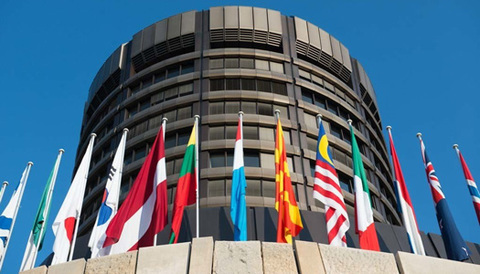 |
|
Headquarters of Bank for International Settlements (BIS) in Basel, Switzerland. — Photo BIS
|
In addition to the central banks of Kuwait and Morocco, the three new additions will bring the number of BIS members to 63.
The BIS – popularly known as the ‘central bank of central banks’ – said it would also increase collaboration in its work as a forum for international co-operation and as a hub for central banks and other financial authorities.
"Reviewing membership at regular intervals ensures that the membership base remains in keeping with the bank's global profile and its mandate to promote global monetary and financial stability," Jens Weidmann, chair of the BIS’ board of directors, said.
The membership of two of the central bank committees based at the BIS – the Committee on the Global Financial System (CGFS) and the Markets Committee – is also being expanded.
The CGFS, a central bank forum for monitoring and analysing broad financial system issues, will invite Argentina, Russia, Saudi Arabia, South Africa and Thailand to join. This will take the number of central bank members to 28.
The Markets Committee, which monitors financial market developments, will invite Indonesia, Malaysia, Russia, South Africa and Turkey to join. This will take the number of central bank members to 27.
GEM Chair Mark Carney said that, following the expansion, emerging market economies (EMEs) would make up about two fifths of the membership of each committee.
"In the last decade, EMEs have become much larger and ever more connected to the global financial system. Having a representative range of views on financial market and monetary matters will benefit the citizens of EMEs and advanced economies alike," he said.
The BIS is an international financial institution owned by central banks which fosters international monetary and financial cooperation and serves as a bank for central banks.
The BIS, which is based in Basel, Switzerland, carries out its work through its meetings, programmes and through the Basel Process – hosting international groups pursuing global financial stability and facilitating their interaction. It also provides banking services, but only to central banks and other international organisations. — VNS
 The State Bank of Vietnam has been invited to become a member of the Bank for International Settlements, the first expansion of the prestigious international financial institution's central bank membership base since 2011.
The State Bank of Vietnam has been invited to become a member of the Bank for International Settlements, the first expansion of the prestigious international financial institution's central bank membership base since 2011.